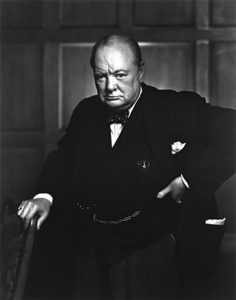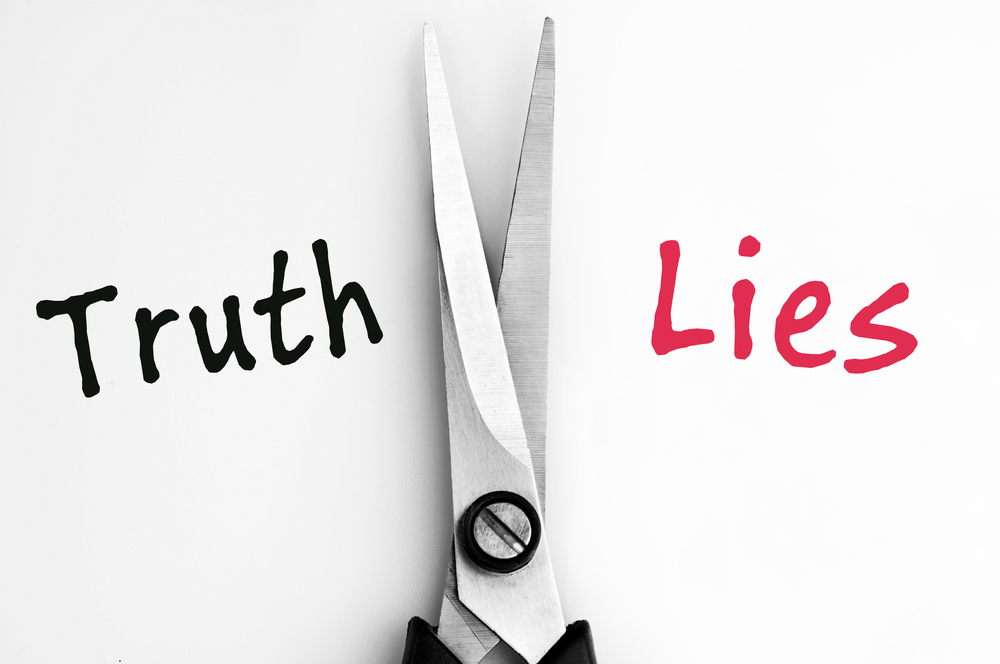Communism worked very well for the early Christians (Acts 2: 44–45).
The early Christians shared their worldly possessions voluntarily. Communists and socialists take other people’s possessions by force. As Winston Churchill once quipped, “The Socialism of the Christian era was based on the idea that ‘all mine is yours,’ but the Socialism of [today] is based on the idea that ‘all yours is mine.’”

In the parable of the good Samaritan, the Samaritan freely chose to use his own time and resources to help the injured man. He did not vote to force other people to do it in his stead. Like progressives, libertarians believe in helping other people. Unlike progressives, we believe that compassion should be voluntary and not coerced.
Karl Marx got his definition of economic justice (‘from each according to his abilities; to each according to his needs’) from the Bible.
Socialists say they want an economy based on the rule: “From each according to his ability, to each according to his need.” The incentives under such a system are to demonstrate minimum ability and maximum need.
In a free market, people produce according to their ability and are rewarded in proportion to the benefits they provide to other people – as judged by those people. The incentive, therefore, is to produce what others want at prices they are willing and able to pay.
Supporters of government control often admit that free markets deliver the goods, but argue that governments distribute them more fairly. They point to people who, because of age or disability, are incapable of producing anything. The government must control the economy, they claim, so that it can redistribute goods to these few.
But rewarding need yields more of it, adding those who will not produce to those who cannot. And taxing demonstrated ability yields less ability demonstrated. Need, which socialism claims to address, can therefore only grow under socialism. By contrast, under the free market, need does not pay, production does, so production grows and need declines.
The choice between government control and the free market is the choice between government coercively combating growing need amid growing poverty and individuals voluntarily combatting shrinking need amid growing wealth.
Socialism redistributes the wealth, making society more just.
Justice means to give to each what is her due – what she has earned. Redistribution gives to some what is due to others – the opposite of justice. As economist Thomas Sowell asked, “What is your ‘fair share’ of what someone else has worked for?
Richard Fulmer worked as a mechanical engineer and a systems analyst in industry. He is now retired and does free-lance writing. He has published some fifty articles and book reviews in free market magazines and blogs. With Robert L. Bradley Jr., Richard wrote the book, Energy: The Master Resource.


READER COMMENTS
Thomas Lee Hutcheson
Aug 21 2022 at 8:37am
If we had to chose between “free markets” and “socialism” I’ll go with “free markets.”
I don’t see much relevance relevance of Mr. Fulmer’s dichotomy to how we might reform the system we’ve got. Should we eliminate the “carried interest” feature of taxation and use the proceeds for a Child Tax Credit? Substitute a VAT for the wage tax that is earmarked to the SS/Medicare Trust funds?
Richard W Fulmer
Aug 21 2022 at 2:25pm
My points are entirely irrelevant if you assume that the only option for dealing with poverty is choosing between government program A or government program B.
But there are other options. Marvin Olasky’s book, The Tragedy of American Compassion, documents the tens of thousands of lodges, charities, mutual aid societies, missions, civic associations, and fraternal organizations that existed across the country in the 19th and early 20th Centuries. These organizations helped pull people out of poverty by addressing individual causes – ignorance, addiction, or simply bad luck. Thanks to the power of the free market and organizations like these, the poverty rate plummeted from 80% of the population in 1800, to about 15% in the 1960s.
In the late 1960s and early 1970s, however, the “Great Society” programs kicked in and displaced private charitable organizations. As a result, the poverty rate has remained frozen at about 12-15% ever since. Rather than addressing the unique issues that afflict individual people, government programs do little more than help make the poor more comfortable in their poverty.
Moreover, policies at all government levels – federal, state, and local – create and sustain poverty. Welfare rules that favor single-parent families serve to break up families. Children, regardless of race, who grow up without fathers are far more likely than their peers to drop out of school, become addicted to drugs or alcohol, be unemployed, be homeless, commit crimes, and commit suicide.
Zoning laws, building codes, and rent controls make housing less available and more expensive. Public schools run by teachers’ unions increasingly substitute indoctrination for education.
Minimum wage laws, occupational licensing, business startup regulations, occupational zoning restrictions, and laws against “gig” work limit employment. The government’s “War on Drugs” creates job “opportunities” for young men who are locked out of the legal job market by government regulations and restrictions. Such opportunities all too often lead to imprisonment or death.
Agricultural subsidies, tariffs, taxes, and industrial policy interventions raise the price of food, clothing, and transportation. Government requirements that inner-city stores, which face high shoplifting, robbery, and insurance costs, charge no more than suburban supermarkets help create urban “food deserts.”
Asset forfeiture laws incentivize predatory cities to turn police departments into revenue sources. The laws disproportionally hurt the poor who typically cannot afford to hire lawyers to help them get their property back.
For decades people have asked what government can do to end poverty. A better question is: What can government stop doing?
vince
Aug 22 2022 at 12:44pm
Part of the problem with government do-gooding is the consequent bystander effect. Those who might have helped choose not to. After all, the government will take care of it.
David Seltzer
Aug 21 2022 at 6:21pm
Mr. Fulmer: I suspect government uses coercive agencies to weaponize amiable morality. Amiable morality defined as the emotionally appealing morality of familiar groups. Their argument; the mundane morality of voluntary legal exchange between individuals and groups is more impersonal and less caring.
David Seltzer
Aug 21 2022 at 6:44pm
Mr. Fulmer, Amiable morality, defined as the emotionally appealing morality of familiar groups, has been weaponized by coercive government agencies. Mundane morality of voluntary exchange between individuals and groups is dismissed as cold and uncaring. Hence central planners must offer succor, with low probability of success, to the dispossessed.
David Seltzer
Aug 22 2022 at 10:55am
Mr. Fulmer, apologies for double post
dennis mill
Aug 22 2022 at 6:14pm
Good article. Lots to agree with. One trivial point of disagreement would be that “Communism worked very well for the early Christians.” One could certainly argue that if they were truly practicing communism, that this may also have occurred only in Jerusalem and not widely practiced elsewhere. The apostle Paul mentioned several times sending gifts to Jerusalem to help them in their poverty. So perhaps their initial “communism” set them up for future financial struggles. I can’t say for sure, but I heard this thought expressed by J.Vernon McGee, Bible scholar and teacher of “Thru the Bible”
Comments are closed.